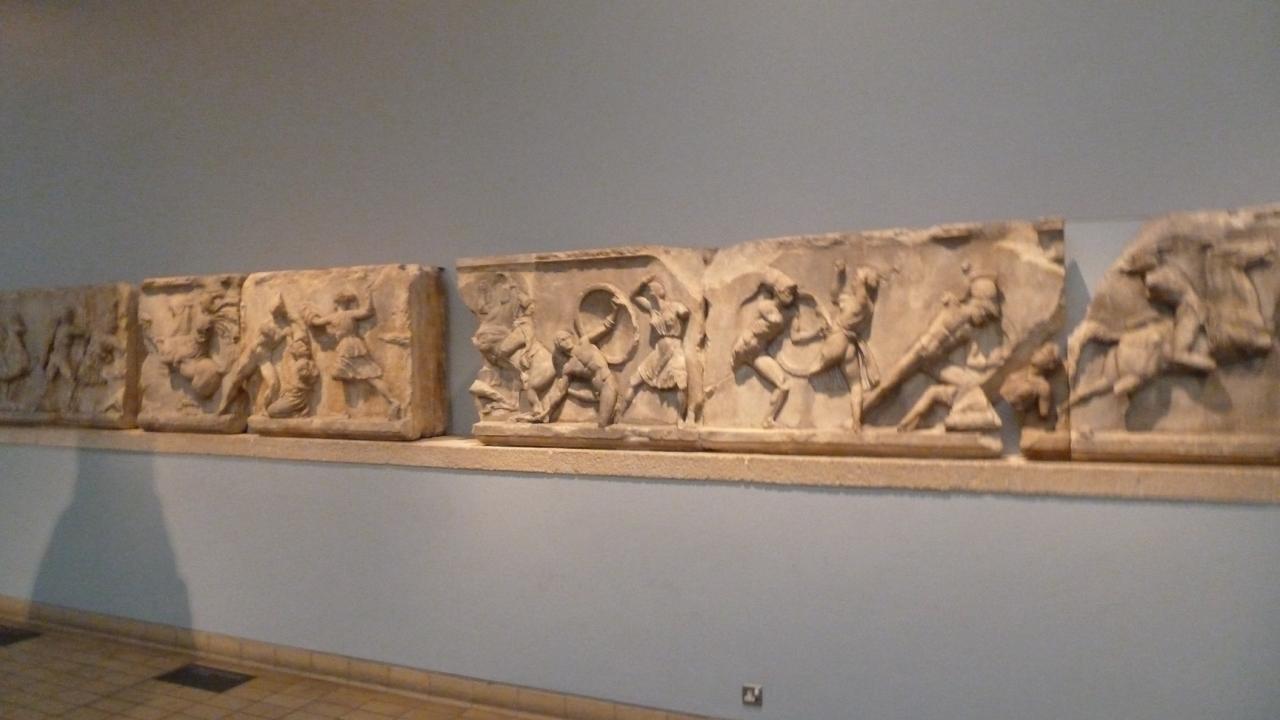The Elgin Marbles at The British Museum
So, here's the scoop: The Elgin Marbles were originally part of the Parthenon, that iconic temple perched on the Acropolis in Athens, dedicated to the goddess Athena. Created by the legendary Greek sculptor Phidias in the 5th century BCE, they adorned the temple's frieze, metopes, and pediments.
Now, the drama begins with Lord Elgin, a British diplomat, and his controversial actions in the early 19th century. He got permission from the Ottoman Empire (who ruled Greece at the time) to remove a substantial chunk of the sculptures and ship them to England. This didn't sit well with many, especially the Greeks, who consider them a vital part of their cultural heritage.
The Elgin Marbles in the British Museum are a mix of high and low relief sculptures that depict various scenes from Greek mythology, battles, and religious ceremonies. They're not only artistic masterpieces but also provide valuable insights into the history and culture of ancient Athens.
The controversy surrounding these marbles is whether they should be returned to Greece or remain in the British Museum. The Greeks have been campaigning for their repatriation for years, arguing that they were essentially pilfered during a time of Ottoman rule. On the flip side, the British Museum insists that they've preserved and showcased these treasures for the benefit of a global audience.


